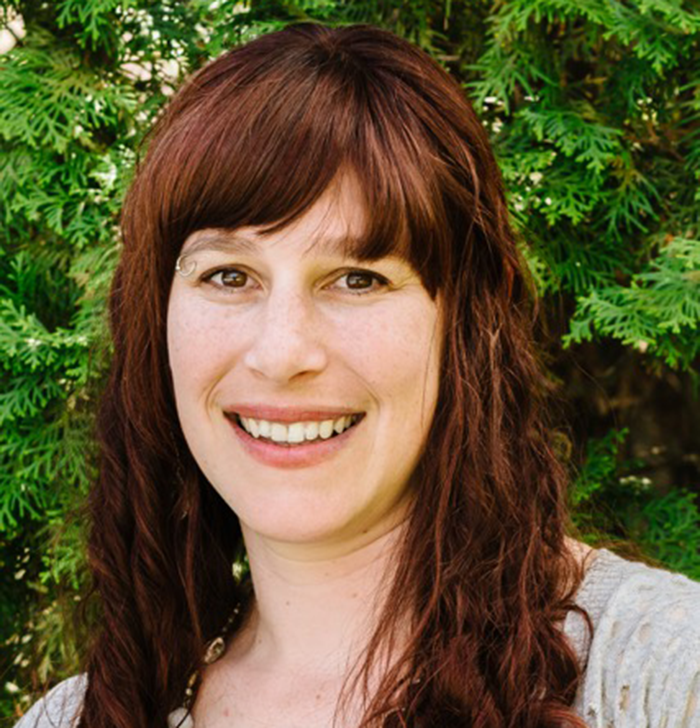We’re taking time over the following weeks to get to know the participants in the GSA’s Early Career Scientist Leadership Program. Join us every week to learn more about our early career scientist advocates.
![]()
Aleeza Gerstein
Liaison, Communication & Outreach Subcommittee
University of Minnesota
Research Interest:
My research is driven by a desire to understand how the specifics of genomic and ecological environments constrain or enhance the appearance and spread of beneficial mutations. A major thrust of my work is on antimicrobial resistance, which is increasingly recognized as a critical threat to global public health. As drug resistance is inherently an evolutionary problem, my research is grounded in evolutionary theory and an understanding of evolutionary processes. My particular focus in on fungal pathogens, which represent an increasing cause of morbidity and mortality worldwide; however, our basic understanding of fungal diseases lags behind our understanding of viral, bacterial, and parasitic diseases. Furthermore, fungal genomes are incredibly labile, and karyotypic variation in ploidy (the number of homologous chromosome sets) and aneuploidy (imbalance in the number of chromosomes) are frequent.
My research program purposefully uses different species of fungi. I have previously worked with the genetic model organism Saccharomyces cerevisiae, as well as two of the most prevalent human fungal pathogens: the diploid ascomycete Candida albicans that typically resides as a commensal in the human gut and the haploid basidiomycete Cryptococcus neoformans, which is a saprophytic environmental species that opportunistically colonizes the human lung.
As a PhD-trained scientist, you have many career options. What career paths interest you the most?
In truth, I don’t think there is a single career path that interests me the most. I think I would be very happy in a traditional research and teaching professor job, but I also see tremendous value and the potential for fulfillment in other science-associated careers. As with many other scientists, I have recently been very motivated by the push to increase the number of scientists participating in local, national and international politics, and I see this as one potentially very exciting avenue for myself in the future.
In addition to your research, how else do you want to advance the scientific enterprise?
I think one of the pathways to success and happiness in academia (and life!) is through community involvement. As a postdoctoral fellow, I struggled a bit to find my community, particularly as my postdoc has been geographically unstable—I’ve spent time in Israel, the United States, and Canada. Attending workshops and conferences has been where I have most felt “at home” in the past few years. I think there is an opportunity to leverage technology to increase opportunities for other scientists—particularly early career scientists—to interact with each other outside of the context of traditional conferences. I would also like to increase training and opportunities for engagement with the general public. The work we do is so important, yet the critical information that we learn through our research is not always well disseminated beyond our field-specific communities.
I am also a community organizer with Leadnow, a non-partisan Canadian organization that seeks to build a just, sustainable, and equitable society. By educating and empowering the public and directly engaging with politicians, I personally seek to increase scientific literacy and advance evidence-based political decision-making.
As a leader within the Genetics Society of America, what do you hope to accomplish?
In addition to my service on the Communication & Outreach Subcommittee, I have contributed to the design and implementation of a new Early Career Scientist Peer Review Training initiative with GENETICS. This program is designed to provide mentored training in completing peer review of scientific manuscripts. The demands on early career scientists are many. There is a constant need to advance your scientific knowledge, identify novel ways to progress your project, grow your professional skills, and contribute to the community. This program is designed to provide a time-efficient, mentored opportunity for early career scientists to contribute to the community while developing a critical skill-set for success in a variety of scientific careers. I look forward to working with our team to launch the new program in the coming months.
Previous Leadership Experience:
- Chair – Zoology Graduate Students Mentorship Program; UBC Zoology
- Vice President – Graduate Students Association; UBC Zoology
- Departmental Representative – Graduate Student Society; UBC
- Primary Organizer and Conceptor – An Evening of Biologists Socializing; Vancouver-area Universities































